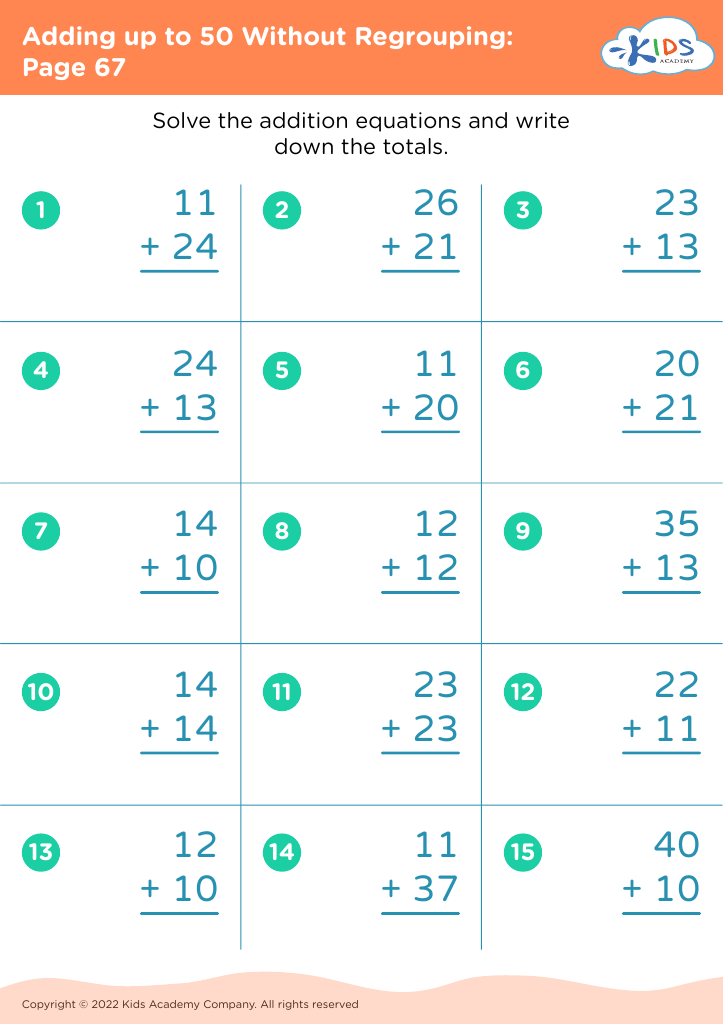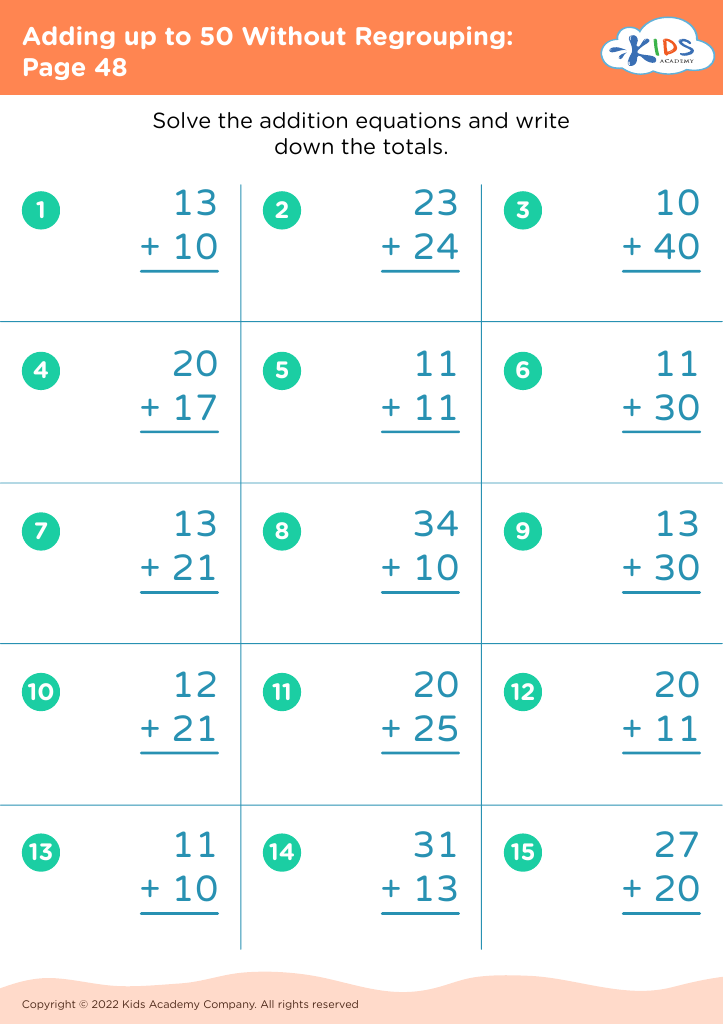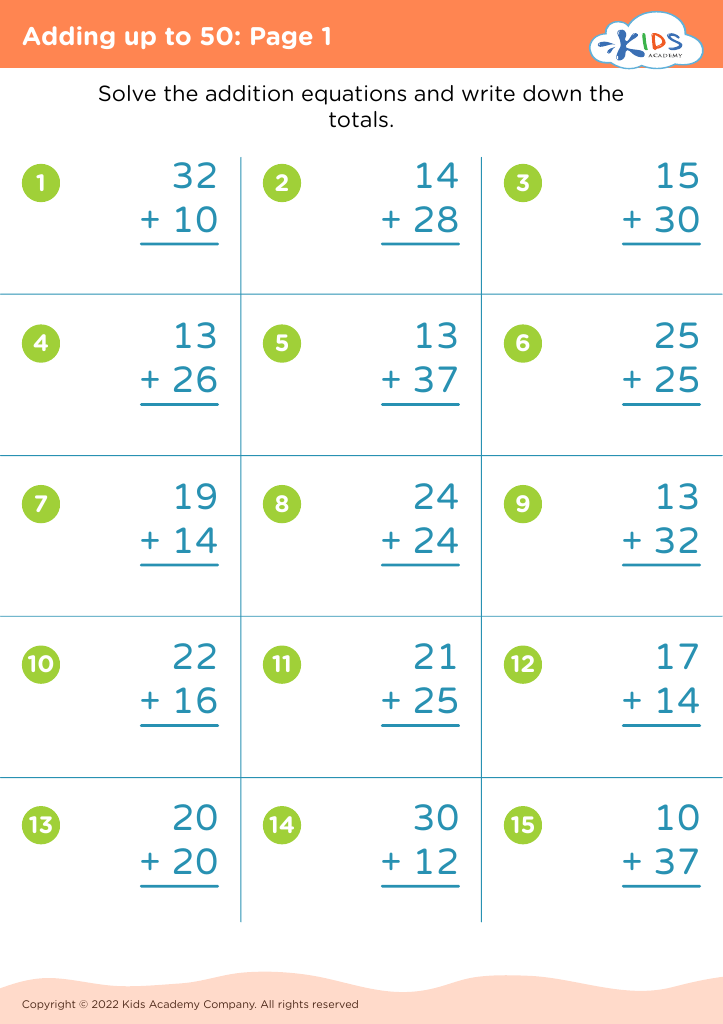Basic Addition Adding up to 50 Worksheets for 8-Year-Olds
7 filtered results
-
From - To
Enhance your child's arithmetic skills with our "Basic Addition Adding up to 50 Worksheets for 8-Year-Olds." These engaging and educational worksheets are specifically designed to help young learners master the concept of addition within a range up to 50. Each worksheet is thoughtfully crafted to provide a fun and interactive learning experience, boosting your child's confidence in math. Perfect for classroom or at-home practice, our worksheets support the development of essential math skills through varied and enjoyable exercises. Give your 8-year-old the tools they need to succeed in their mathematical journey with our expertly designed materials.
Basic addition skills are a fundamental cornerstone of mathematical learning, and mastering adding up to 50 is particularly crucial for 8-year-olds. At this developmental stage, children are building critical cognitive and problem-solving abilities that will support their academic growth.
For parents and teachers, ensuring that children have a strong grasp of basic addition in this range sets the foundation for more complex mathematical concepts, such as subtraction, multiplication, and division. These skills are embedded in everyday activities like shopping, cooking, and time management. This early mathematical competency fosters confidence and a positive attitude toward learning, making children more receptive to advanced subjects later on.
Moreover, achieving proficiency in basic addition up to 50 aligns with most educational standards and curricula designed for this age group. This ensures that children remain on track with their peers academically, avoiding the frustration and self-esteem issues that often arise from falling behind. Finally, mathematical skills are exercise for the brain, helping improve memory, attention span, and critical thinking. When parents and teachers emphasize the importance of basic addition, they are not only supporting academic success but also contributing to the overall cognitive and personal development of the child.



















